Question And Answer
Publications
Articles, publications, books, tools and multimedia features from the U.S. Institute of Peace provide the latest news, analysis, research findings, practitioner guides and reports, all related to the conflict zones and issues that are at the center of the Institute’s work to prevent and reduce violent conflict.
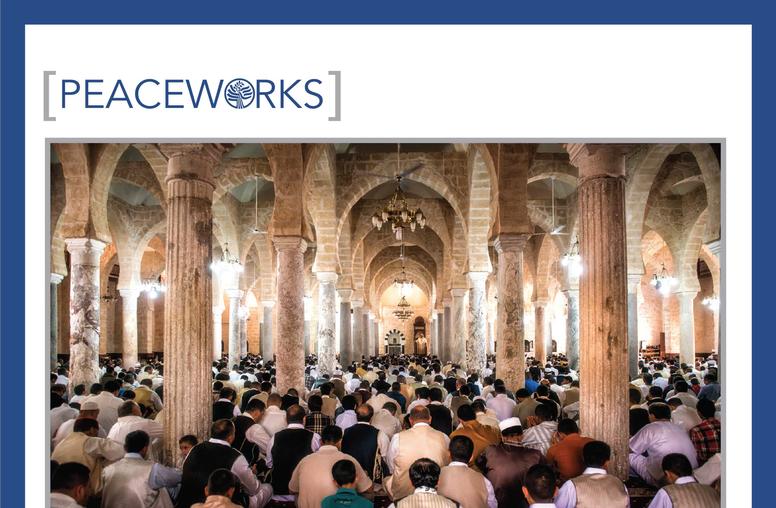
Libya’s Religious Sector and Peacebuilding Efforts (Arabic)
التقرير الماثل هو عصارة استبيانين أُجْرِيا في ليبيا خلال عامي 2014 و2016. والغاية منه سَبْرُ أغوار القطاع الديني في ليبيا ورصد تأثيره في الحكم والمجتمع. وقد استندت عملية استخلاص نتائج هذا التقرير إلى الجهود البحثية التي أجراها فريق من الباحثين المحليين الخبراء بالشأن الليبي. وترسم هذه النتائج خريطة لأهم التوجهات الدينية والمؤسسات الدينية والجهات الدينية الفاعلة في ليبيا، وترصد منظور الليبيين لمساهمة القطاع الديني في بناء السلام وتعزيز العدالة والديمقراطية.
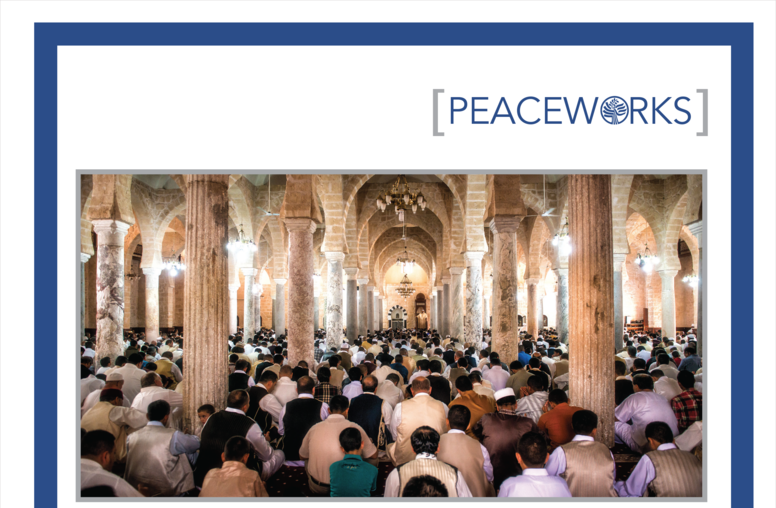
Libya’s Religious Sector and Peacebuilding Efforts
Derived from two surveys conducted in Libya in 2014 and 2016, this report strives to heighten understanding of the country’s religious sector and its impact on governance and society. The findings—which are bolstered by the local knowledge of Libyan researchers—map the major religious trends, institutions, and actors in the country to describe how Libyans perceive the contribution of the religious sector to building peace and fostering justice and democracy.
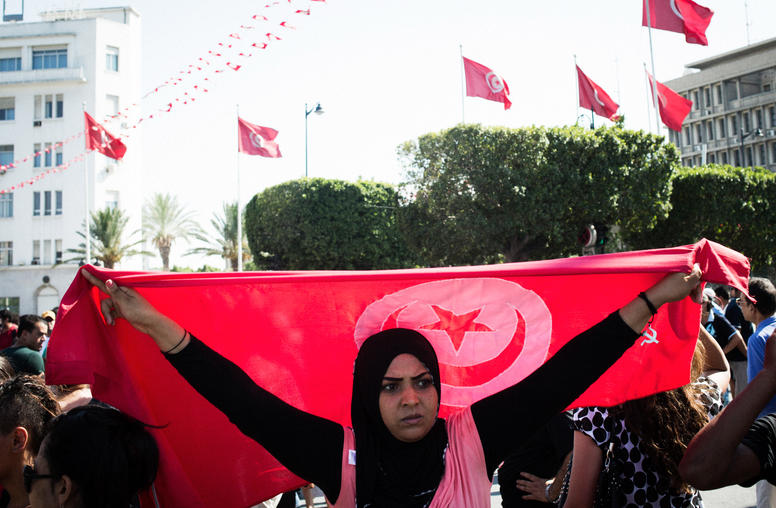
Aid Remains Key to a Counter-ISIS Plan, Tunisia Says
As the Trump administration prepares an international conference to shape strategy against ISIS, the plan should include economic aid to undercut extremist recruitment, Tunisia’s foreign minister said March 14. Financial help is essential to help nations at risk, such as Tunisia, offer jobs and futures for unemployed, disillusioned youth, Foreign Minister Khemaies Jhinaoui told an audience at USIP.
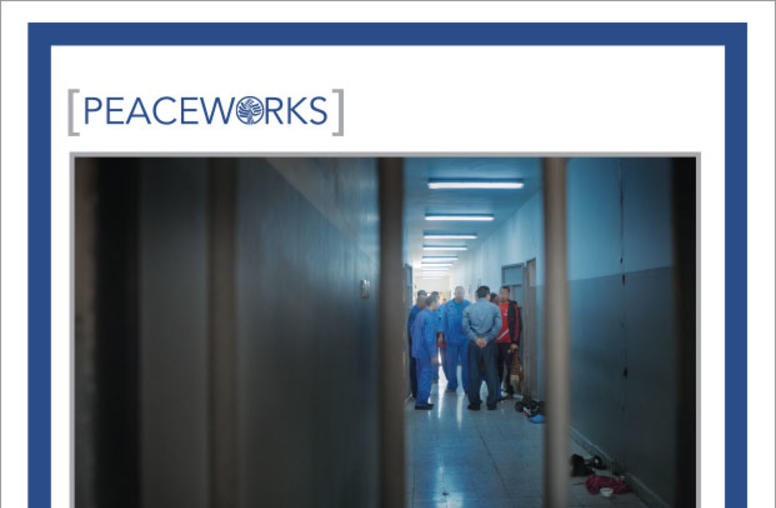
Prisons and Detention in Libya (Arabic)
التقرير الماثل هو عصارة استبيانين أُجْرِيا في ليبيا خلال عامي 2014 و2016. والغاية منه سَبْرُ أغوار القطاع الديني في ليبيا ورصد تأثيره في الحكم والمجتمع. وقد استندت عملية استخلاص نتائج هذا التقرير إلى
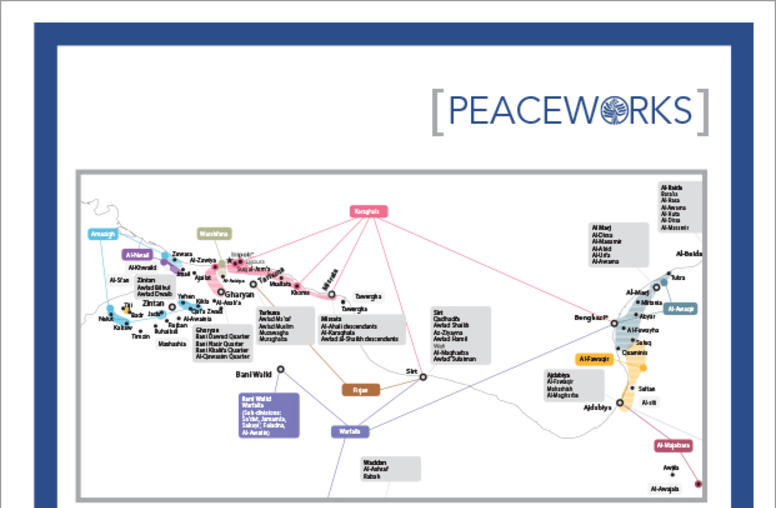
Tribe, Security, Justice and Peace in Libya Today
After the 2011 revolution in Libya that toppled Gadhafi and destroyed many state institutions, tribes and armed groups stepped in to fill the vacuum. The trend increased after the collapse of central state security in 2014. This report examines the renewed role of tribes as guarantors of social stability and providers of security and justice services in the country during the period and today.
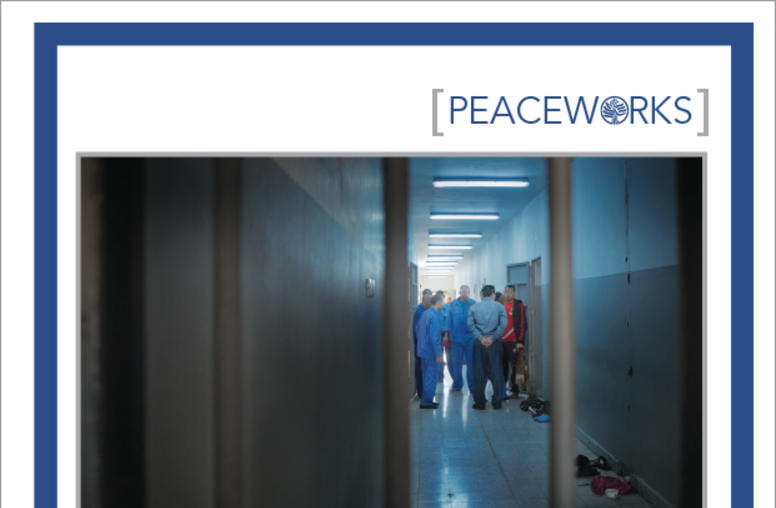
Prisons and Detention in Libya
This report examines the prison system in Libya. With the permission of the Libyan Ministry of Justice and Judicial Police, United States Institute of Peace (USIP) research teams conducted two assessments of the Libyan prison system, visiting detention facilities throughout the country in 2012 and again in 2015–16 to evaluate organizational function, security, infrastructure, and prisoner well-being. This report combines and compares the findings of the two assessments, discussing the broader...

Policing Libya: Form And Function Of Policing Since The 2011 Revolution
This report examines the different directions that policing in Libya has taken since the fall of Gadhafi in 2011. Using two cities, Tobruk and Sabha, as representative case studies, the report examines how competing and overlapping groups have assumed policing functions and traces the social and political inclinations of those groups. Acknowledging that local variation prevents countrywide generalization, the report identifies features and tendencies of the Libyan landscape that are relevant ...
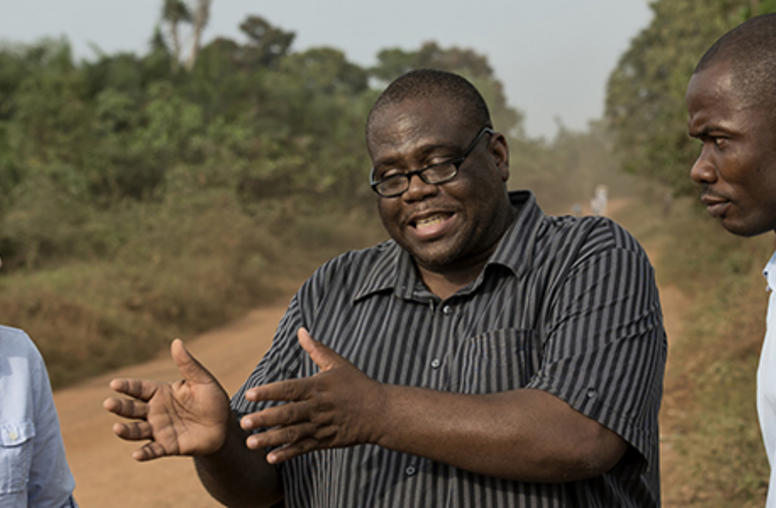
How to Cut Danger—And Accept Risk—in Civilian Missions
The U.S. State Department, searching for the balance between carrying out its missions overseas and minimizing the risk in high-threat environments, has rolled out an array of programs and policies to help diplomats and aid workers in high-threat environments, Deputy Secretary of State Heather Higginbottom said at the U.S. Institute of Peace. She spoke last week, before today’s release of a congressional report from a probe of the 2012 attacks in Benghazi, Libya, that killed four American civ...
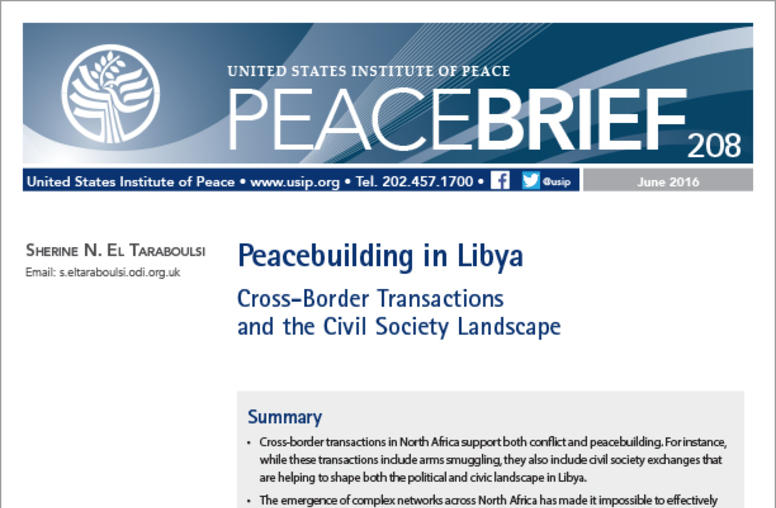
Peacebuilding in Libya: Cross-Border Transactions and The Civil Society Landscape
Cross-border transactions have been shaping the Libyan civil and political landscape for decades. However, desk research and field interviews in Tunisia reveal that interventions for peacebuilding are not fully accounting for these transactions or other regional activities. This brief argues that supporting local and regional actors in working toward a unified vision for Libya requires factoring in cross-border, civil society exchanges and the tensions that affect them.
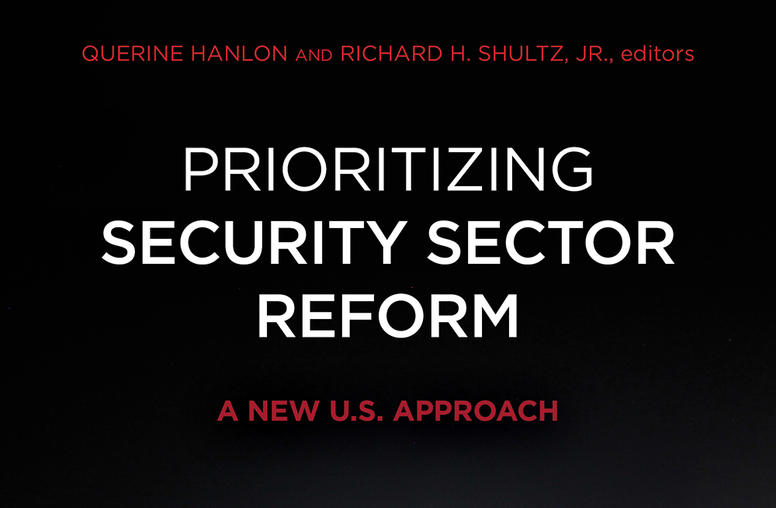
Prioritizing Security Sector Reform
Prioritizing Security Sector Reform: A New U.S. Approach argues that security sector reform (SSR) should be at the core of a new U.S. policy to strengthen the security sector capacity of countries where U.S. interests are at stake. As the United States withdraws from a more interventionist policy, it cannot wholly ignore the growing disorder in fragile environments around the globe. In place of large, boots-on-the-ground interventions relying on expensive train and equip programs with only fl...